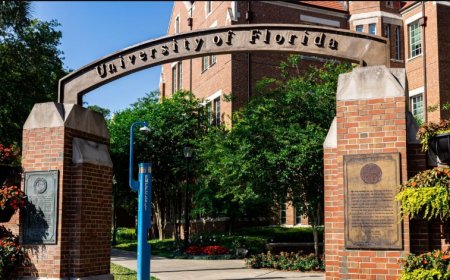UVA President: Leadership, Legacy, and the Politics of Higher Education

Introduction
As the 9th President of the University of Virginia (UVA), James E. Ryan presided over some of the university's most pivotal moments—from tuition reforms and pandemic leadership to free speech debates. However, in June 2025, Ryan made headlines again when he resigned amid significant federal pressure tied to the university’s Diversity, Equity & Inclusion (DEI) programs. His decision has ignited debate surrounding academic independence, government influence, and the future of public higher education in America.
This article provides an in-depth look at Ryan's presidency, the events leading to his resignation, the broader impact of federal intervention, and what comes next for UVA.
Background: The Career of James E. Ryan
A Transformative Leader
James E. Ryan took office at UVA in August 2018, bringing a track record as a legal scholar, dean of Harvard’s Graduate School of Education, and UVA Law professor . Key highlights of his presidency include:
-
Launching tuition-free initiatives for in-state students from families earning under $100K ($50K for full support).
-
Driving a $5 billion capital campaign, early by 18 months, enabling over $1 billion in student support.
-
Spearheading the new School of Data Science, Northern Virginia extension, and strategic community partnerships.
-
Advocating for free expression, COVID-era campus management, and tuition equity.
His presidency reflected a blend of academic vision, administrative strength, and commitment to diversity and access.
The Resignation: What Happened and Why
Federal Pressure Over DEI
In March 2025, UVA’s Board of Visitors—majority appointed by Virginia’s GOP governor—voted to dissolve its DEI office amid rising conservative scrutiny and Justice Department investigation over the university's DEI initiatives . Despite partial compliance, the DOJ alleged Ryan had not fully dismantled DEI, threatening federal funding cuts and visa complications .
Faced with the possibility of jeopardizing scholarships, research grants, and student programs, Ryan stated he could not “fight the federal government” alone . He officially announced his resignation on June 27, set to take effect by mid-August
Immediate Reactions
| Group | Reaction Summary |
|---|---|
| Democratic Leaders | Sen. Tim Kaine and Mark Warner condemned the resignation as federal overreach |
| Faculty & Students | Campus protests, campus group Wahoos4UVA defended university autonomy . |
| DOJ/Conservatives | DOJ praised the transition, citing need for new leadership aligned with federal law . |
The Broader Implications
Erosion of Institutional Independence
Ryan’s resignation underscores a growing trend of executive interference in public universities, particularly over contentious topics like DEI As a publicly funded institution, UVA is susceptible to political intervention—raising questions about long-term academic autonomy.
Dialogue vs. Directive
Ryan often chose collaboration over confrontation—reorganizing DEI, not abolishing it, to maintain federal funding. Critics argue this accommodation failed to protect core values. Supporters counter that preserving funding was essential to avoid broader institutional harm
Ryan’s Legacy: Policies, Progress, and Polarization
Signature Achievements
-
Generational Access
-
Tuition relief for low- and middle-income families revolutionized affordability .
-
-
Lifelong Education
-
Data science program, campus expansion, and community outreach strengthened UVA's role in the region
-
-
Free Expression & Crisis Leadership
-
From pro-Palestinian and protest encampments to pandemic management, Ryan upheld institutional calm and continuity
-
Lasting Questions
-
Did accommodating federal mandates set a dangerous precedent for future presidents?
-
Should public universities be able to affirm DEI values despite political tides?
-
How will state boards and elected officials shape higher ed policy moving forward?
What’s Next for UVA?
Future Outlook & Navigating Change
-
Board of Visitors faces a critical task: selecting a president who can balance federal requirements with institutional ideals.
-
Donor and alumni scrutiny may increase, shaping campus policy decisions.
-
Federal oversight mechanisms will likely persist, impacting other institutions similarly.
-
UVA’s reputation hinges on maintaining momentum in equity initiatives, preserving financial aid, and fostering academic freedom.
Conclusion
James E. Ryan’s presidency encapsulates the tensions of modern higher education—between advancement and autonomy, innovation and compliance. His achievements in accessibility, community outreach, and free speech are noteworthy. Yet, his resignation under federal pressure highlights a troubling inflection point: public universities may no longer be able to chart independent paths when federal funds hang in the balance.
The unfolding controversy at UVA serves as a bellwether: Will public universities uphold their mission, or yield to political currents? As institutions across the nation weigh these questions, UVA’s next president will be tasked with steering the university through this challenging new terrain.




























